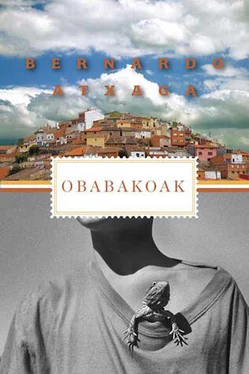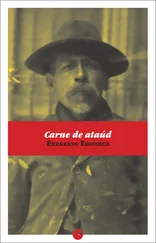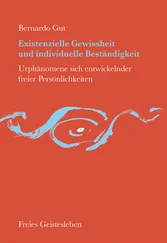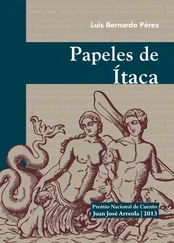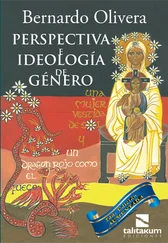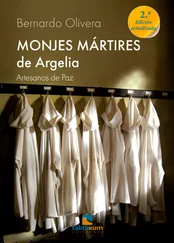Bernardo Atxaga - Obabakoak
Здесь есть возможность читать онлайн «Bernardo Atxaga - Obabakoak» весь текст электронной книги совершенно бесплатно (целиком полную версию без сокращений). В некоторых случаях можно слушать аудио, скачать через торрент в формате fb2 и присутствует краткое содержание. Год выпуска: 2010, Издательство: Graywolf Press, Жанр: Современная проза, на английском языке. Описание произведения, (предисловие) а так же отзывы посетителей доступны на портале библиотеки ЛибКат.
- Название:Obabakoak
- Автор:
- Издательство:Graywolf Press
- Жанр:
- Год:2010
- ISBN:нет данных
- Рейтинг книги:3 / 5. Голосов: 1
-
Избранное:Добавить в избранное
- Отзывы:
-
Ваша оценка:
- 60
- 1
- 2
- 3
- 4
- 5
Obabakoak: краткое содержание, описание и аннотация
Предлагаем к чтению аннотацию, описание, краткое содержание или предисловие (зависит от того, что написал сам автор книги «Obabakoak»). Если вы не нашли необходимую информацию о книге — напишите в комментариях, мы постараемся отыскать её.
Obabakoak
The Observer
Obabakoak — читать онлайн бесплатно полную книгу (весь текст) целиком
Ниже представлен текст книги, разбитый по страницам. Система сохранения места последней прочитанной страницы, позволяет с удобством читать онлайн бесплатно книгу «Obabakoak», без необходимости каждый раз заново искать на чём Вы остановились. Поставьте закладку, и сможете в любой момент перейти на страницу, на которой закончили чтение.
Интервал:
Закладка:
Then César Calvo, the wise man of Iquitos, looked up at the sky and said:
“There’s still plenty of daylight; our best bet would be to continue our journey on foot along the banks of the Unine, that way we’ll avoid the whirlpools at the mouth of the river.”
“Fine,” I said, and, taking out my machete, I plunged in among the palosangres and began to clear a path ahead. He and Laura followed me, carrying the one canoe the Indians had left us.
We walked for about four hours, never leaving the shores of the Unine and guided by the sound of its rushing waters. Then we looked for a beach and settled down to spend the night, our first night in Ashaninka territory.
“Who’ll take the first watch?” asked Laura Sheldon (maiden name, Laura Sligo) once the tent had been put up and fires lit around it.
“I’ll take two watches, yours and mine,” I answered.
She shook her head and frowned, as she always did when she was about to get angry.
“And no arguments,” I said to her, sitting down on a tree stump on the beach and making it clear that my watch had already begun.
“He’s a strong young man. He’ll survive,” smiled César Calvo, the good man of Iquitos, and any dispute was thus resolved. Shortly afterward, the two of them were sound asleep in the tent.
The only sound in the whole jungle was the murmur of the Unine flowing close by and the crackling flames of the fires protecting the tent. Where were the birds and snakes whose songs had accompanied us all day? Where were the boisterous makisapa ? Perhaps they were hidden among the branches of the palosangres that fringed the beach, watching us, waiting for a moment’s inattention on our part to leave their lairs and attack us. But I was in no mood to give them that chance. I kept my eyes fixed on the jungle, alert to the slightest whisper, the slightest crack of broken twigs, and only looked away when, getting up from my seat to stretch my legs, I glanced across at the tent and comforted myself with the thought of Laura. I was the guardian of her sleep and that made me happy.
I was still thinking about her when I was startled by the triumphant call of a makisapa. “It must be dawn already,” I thought to calm myself. And just then a naka viper entered the circle of burning logs that protected me and buried his two small fangs in the ankle of my right leg.
“What’s wrong?” exclaimed César Calvo rushing out of the tent. My howls of pain had woken him.
I showed him the snake lying about a yard away from me. I had sliced it in two with my machete.
“A naka !” cried César, opening his eyes wide. Then he picked up the machete and made a long cut in the place where I had been bitten.
“What’s wrong?” asked Laura, who had followed him out of the tent. But her question remained hanging in the air, unanswered, for César was bending over me, sucking the blood from the wound.
“Oh, my God!” said Laura when she realized what had happened. And she said it with such sadness that, for an instant, I forgot the pain. It was proof that she was fond of me too.
After half an hour César said: “I think I’ve got nearly all the poison out.” It was daylight by then and the songs of the inhabitants of the jungle again enveloped us. By the side of the tent a great dark stain sullied the dry earth of the shore. The blood from my wound.
“Does it hurt?” asked Laura.
“It’s not too bad,” I lied.
I was determined not to slow our progress and I began taking down the tent and gathering up the things we needed to put in the canoe, more energetically than ever, in fact, as if the bite had given me renewed strength.
“Shall we go on?” I asked. They both looked at me apprehensively, afraid that at any moment I might collapse. But, as César had said, I was a strong young man. I could withstand the poison that was still inside me.
We dragged the canoe down to the water and, with all three of us rowing, we set off up the Unine, toward the green Tierra Alta where we hoped to find Dr. Sheldon. We had been on the river for about two hours when a new song joined the habitual song of the jungle inhabitants. It was monotonous, repetitive.
The wise man of Iquitos raised his head to listen harder.
“The manguare have begun to sound,” he said, explaining that this was the name the Ashaninka gave to their wooden drums.
“We’re getting near, then.” I sighed. I couldn’t wait to get there. I was feeling weaker and weaker and my ankle was terribly swollen. I wasn’t so sure now that I could withstand the naka ’s poison.
The good man of Iquitos nodded. Yes, any moment now the Ashaninka would appear. Then he added something he had kept secret until then:
“The Ashaninka are good, honest warriors. They’d never kill anyone in an ambush,” he began. Laura and I remained silent. “They don’t use curare,” he went on, “it’s not the virulent, painful poison that the Amawaka, for example, extract from snakes. They use a poison taken from the tohé plant, which kills instantly and painlessly.”
I think it was then that Laura and I realized the great danger we were in. César Calvo certainly chose his moments for telling us such things.
“But I don’t think they’ll harm us. As I’ve told you before, they don’t attack viracochas who come in peace.”
Meanwhile, the manguare were beating in the jungle, growing louder and louder. The Unine River began to narrow.
I soon became incapable of rowing. I lost all strength in my arms and it hurt me just to move my leg. And yet I did not feel unhappy, it was as if the pain were unimportant. After all, I was next to Laura, the beautiful girl I had met in Cuzco, the woman I cared most about in the world, and what mattered was that she find Dr. Sheldon and return with him before the rainy season set in, so that she would not have to stay here among the Ashaninka. For the Ashaninka were a very noisy people, constantly beating those drums of theirs, their manguare, and that wasn’t what I wanted for Laura. I hated to hear her crying the way the ayaymaman cried.
“I’m not crying,” Laura said.
I sat up a little and opened my eyes. I was no longer in the canoe, but lying down on a beach by the Unine River. And indeed Laura wasn’t crying, she was smiling as she mopped the sweat from my brow with a white handkerchief.
“We’ve given you some quinine and the fever’s gone down considerably,” Laura said. She was still smiling.
I felt ashamed. I had no idea what I might have said in my delirium. I feared I might have declared my true feelings for her.
“Can you hear the drums?” asked César Calvo, kneeling down beside me.
It was impossible not to. The clamor of the manguare filled the jungle.
“I hope the Ashaninka come soon. Only a shirimpiare can save your life now,” he added.
“A shirimpiare ?” I asked.
“That’s what they call their medicine men.”
I tried to get up, but in vain. All my strength had ebbed away. I believed the time to say good-bye had come.
“Laura, César, listen to me a moment,” I said. “It’s best if you leave me here. You go on alone and find Dr. Sheldon before the rains come. I’d just like to say how glad I am to have known you both.”
“You silly boy!” exclaimed Laura, laughing, and the good man of Iquitos laughed too. They hadn’t the slightest intention of abandoning me.
I went back to sleep, but this time I slept calmly and dreamed we were roasting monkey meat and that the three of us, Laura, César, and I, were having a party. But there was too much noise at the party, as if we were not the only people there, as if there were many other people, all of whom were eating, singing, and shouting.
Читать дальшеИнтервал:
Закладка:
Похожие книги на «Obabakoak»
Представляем Вашему вниманию похожие книги на «Obabakoak» списком для выбора. Мы отобрали схожую по названию и смыслу литературу в надежде предоставить читателям больше вариантов отыскать новые, интересные, ещё непрочитанные произведения.
Обсуждение, отзывы о книге «Obabakoak» и просто собственные мнения читателей. Оставьте ваши комментарии, напишите, что Вы думаете о произведении, его смысле или главных героях. Укажите что конкретно понравилось, а что нет, и почему Вы так считаете.
